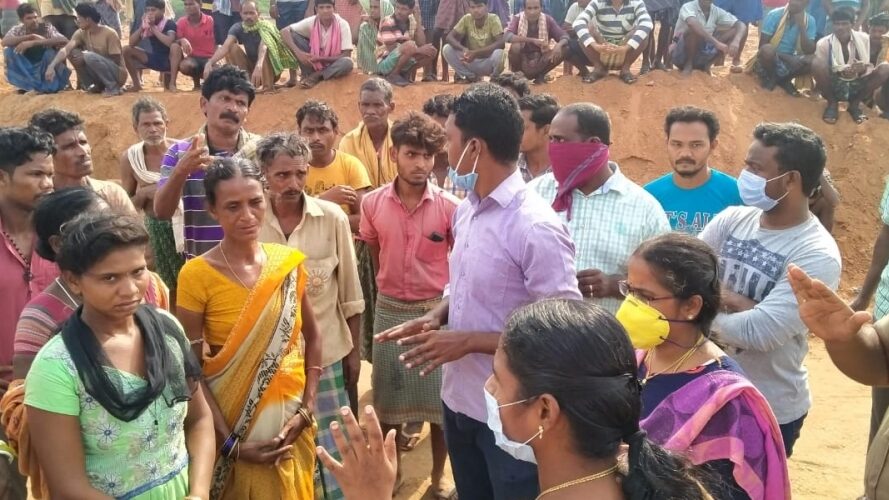Urgent Rescue of 360 People Sparks Mass Exodus from Brick Kilns
Slavery
This week, IJM helped Indian law enforcement rescue 360 people from bonded labor at a notoriously brutal brick kiln—which then led to the release of nearly 7,000 other migrant workers who had been trapped during the COVID-19 lockdown.
Here’s how the story has unfolded:
India’s lockdown has kept millions safe from COVID-19—but it’s also kept many migrant laborers stranded at worksites where they are abused, enslaved and forced to work.
This was the case for 360 children, women and men from northern India who had become trapped at a brick kiln in Tiruvallur District, in the southern state of Tamil Nadu. The kiln’s owner had lured them with cash advances as bait, but then cheated them and forced them to make thousands of bricks a day.
The families had been working for about 6 months, even as COVID-19 began spreading and most businesses were ordered closed. By May 18, food and water had become scarce at the kiln, and the laborers tried asking permission to return home.
Instead, the owner and his accomplices brutally assaulted them with clubs and sticks. One man later told local media, “When we refused to work, the owner and [supervisor] brought a group of men and thrashed us mercilessly. They even beat up women who came for our rescue.”
A few laborers managed to send desperate messages and graphic photographs of the assaults to relatives in Odisha state—one of whom knew IJM and reached out to us for help.
“We were scared for our life,” said one young woman from the kiln. “In fact, we had lost hope to return home alive until the officials came to our rescue on Tuesday.”
Rescue & a Repeat Offender
IJM immediately began working with district authorities and our casework partner Foundation for Sustainable Development (FSD) on what is one of our largest rescue operations ever.
As we investigated further, we discovered this was actually the third time this same owner had trafficked and enslaved people at his kiln. IJM had helped authorities rescue 333 people there in 2015 and 328 more in 2016. The owner was charged in each of these cases, but always posted bail and resumed illegally. Both of those trials are still pending.
This time, the owner and his henchmen had already absconded when the rescue team arrived early on May 19. Police are continuing to search for him, and IJM and FSD legal teams will work to oppose his requests for bail.
At the kiln, the Revenue District Officer (who oversees labor issues) swiftly interviewed the laborers and appointed two police officers to protect them throughout the day and night. She also moved any badly injured victims to a local hospital and provided food relief for the desperate laborers.
At first it seemed the families would have to stay at the brick kiln until national travel bans were lifted, but officials in Tamil Nadu and Odisha coordinated swiftly and made a surprising decision to transport these families immediately. All 360 people were assisted onto trains on May 20 to begin returning home.
Mass Exodus of Migrants
Compelling media coverage and local advocacy around this rescue inspired government officials to go even further in protecting vulnerable people locked down in similar conditions.
On May 19 and 20, officials met with the owners of 30 nearby brick kilns and demanded all migrant laborers be allowed to return home—releasing around 6,750 people in just 48 hours. Authorities arranged 150 buses to bring the laborers to the train station, and then granted them special permission and police escorts to travel home to Odisha, Bihar, Jharkhand and Uttar Pradesh.
With this unprecedented exodus of laborers, FSD Executive Director Dr. Krishnan said joyfully, “Justice reached the voiceless people! Owing to the collective efforts of the government, civil society organizations and media, within 48 hours nearly 7,000 laborers were transported to their homes. This is massive! The government is sensitive to the rights of vulnerable people and is listening to them.”
The magnitude of this government action has resounded throughout Tiruvallur District, as abusive business owners see how authorities are ready to protect the poor. Even amid the pandemic, they are willing to rescue people from bonded labor and—as investigations continue—pursue justice against those who exploited them.